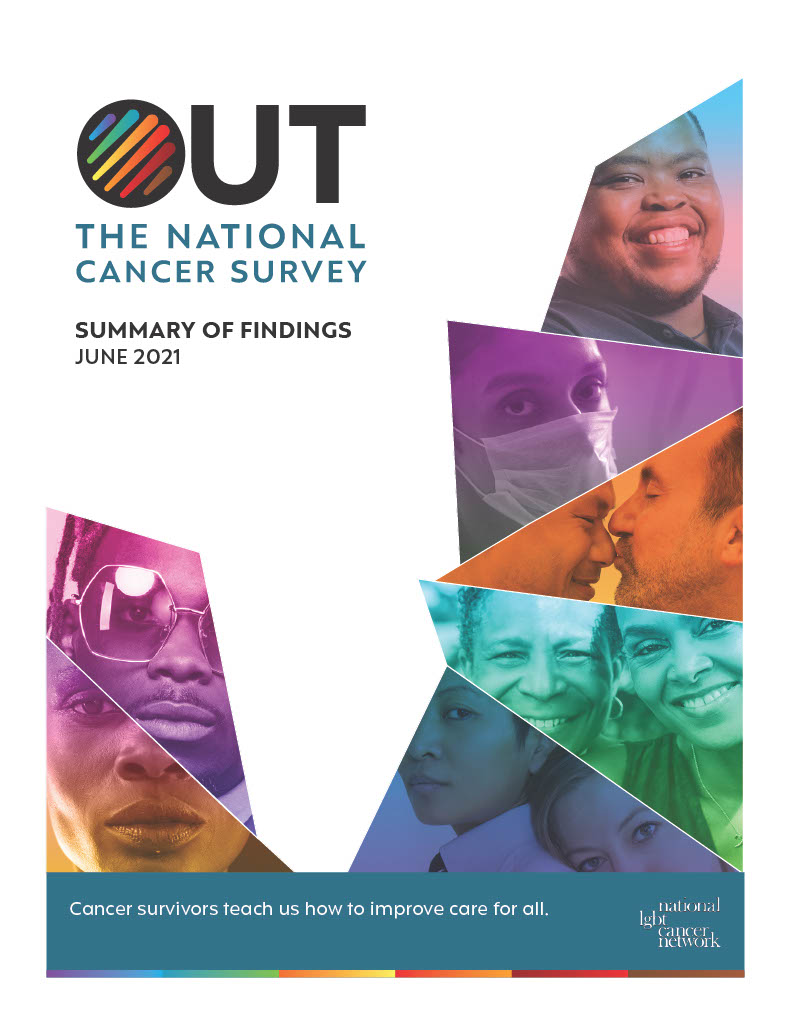
Read Time: 2 minutes

Cancer affects all population groups in the United States, but due to social, environmental, and economic disadvantages, certain groups bear an unequal burden of cancer compared with other groups. A 2022 Gallup poll showed that 7.2% of Americans identify as LGBT (lesbian, gay, bisexual, or transgender). Members of the LGBTQ community face health disparities every day, such as these:
- Low rates of health care insurance
- Bad experiences with health care providers
- Fear of discrimination
7.2% of Americans identify as LGBT
Gay men, especially those who are HIV positive, might have a greater risk of anal cancer compared to heterosexual men. Lesbian and bisexual women may be at increased risk for breast, cervical, and ovarian cancer compared to heterosexual women.
LGBTQ people are also less likely to go in for cancer screenings, putting them at greater risk for having a cancer identified in later stages. They are also less likely to share important information with their health care providers about their sexual orientation. This can lead to poorer outcomes.
The National LGBT Cancer Network released a groundbreaking report in June 2021. OUT: The National Cancer Survey surveyed 2,728 LGBTQ cancer survivors and shares their individual stories of cancer diagnosis, treatment, and survivorship.
Huntsman Cancer Institute is committed to providing quality care to LGBTQ people. We have dedicated professionals working with the community to educate about the importance of cancer prevention and screening. Many Huntsman Cancer Institute staff have participated in training sessions on the needs of the LGBTQ community and work is continuing to get even more professionals trained.
Staff from the Office of Community Outreach and Engagement work with community organizations and partners to eliminate barriers and increase access to cancer prevention interventions, cancer screenings, and treatment. Our team of health educators in the G. Mitchell Morris Cancer Learning Center (CLC) have all received LGBTQ training and they are eager to help you find the resources you need. They have compiled a list of local and national resources for LGBTQ people.
Selected Resources
Here are a few of the materials available in the CLC:
- Breaking the Silence on Cancer and Sexuality: A Handbook for Healthcare Providers
- Cancer and the LGBT Community: Unique Perspectives from Risk to Survivorship
- The Fenway Guide To Lesbian, Gay, Bisexual, And Transgender Health
- Gay and Bisexual Men Living with Prostate Cancer: From Diagnosis to Recovery
- However Long: Four Remarkable Women Meet in an Unlikely Support Group (DVD)
- Invisible: How Young Women with Serious Health Issues Navigate Work, Relationships, and the Pressure to Seem Just Fine
Partner Organizations
These organizations partner with Huntsman Cancer Institute and offer resources for Utah residents who identify as LGBTQ.
